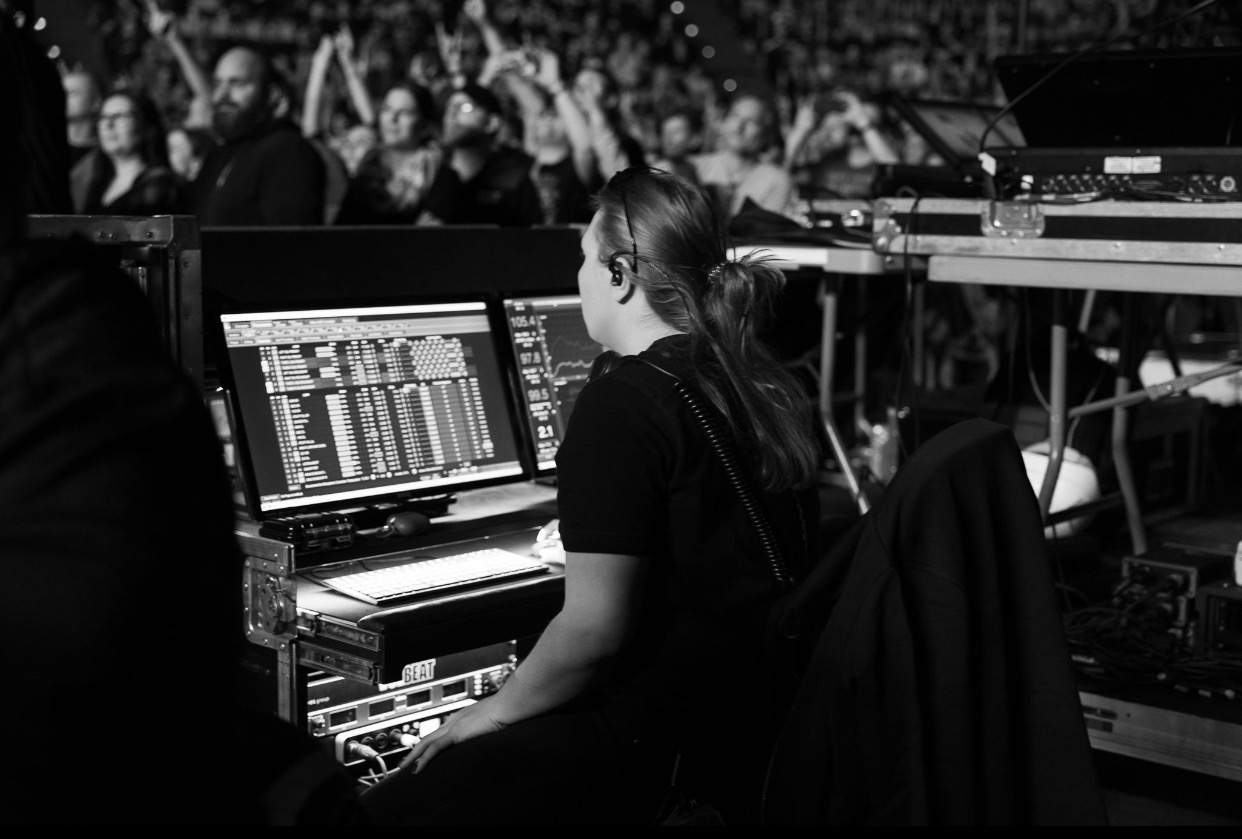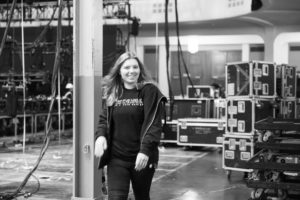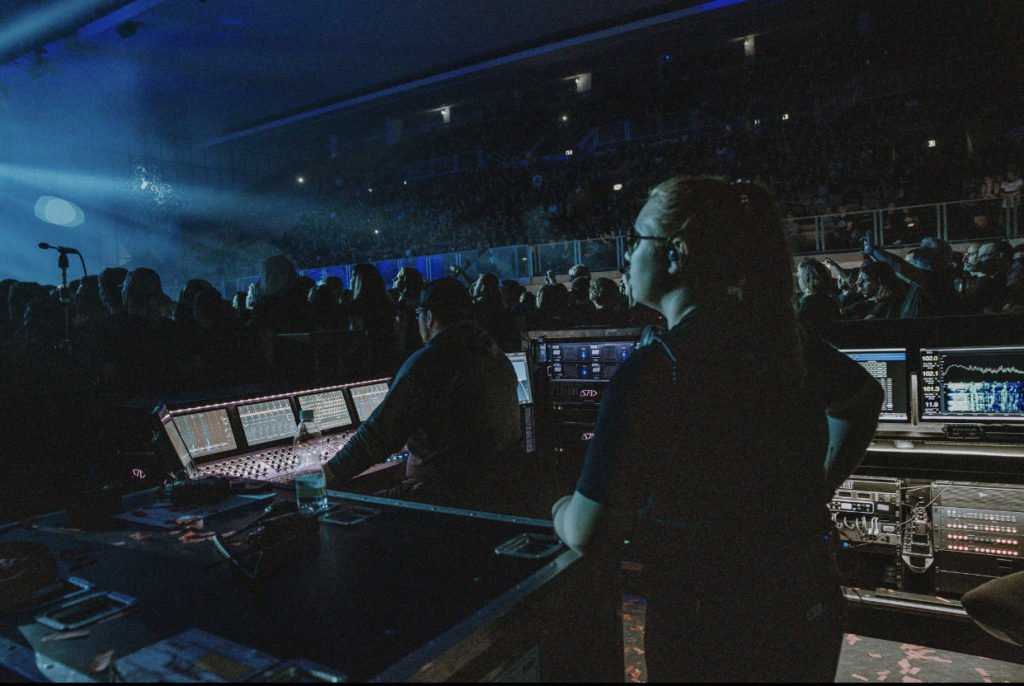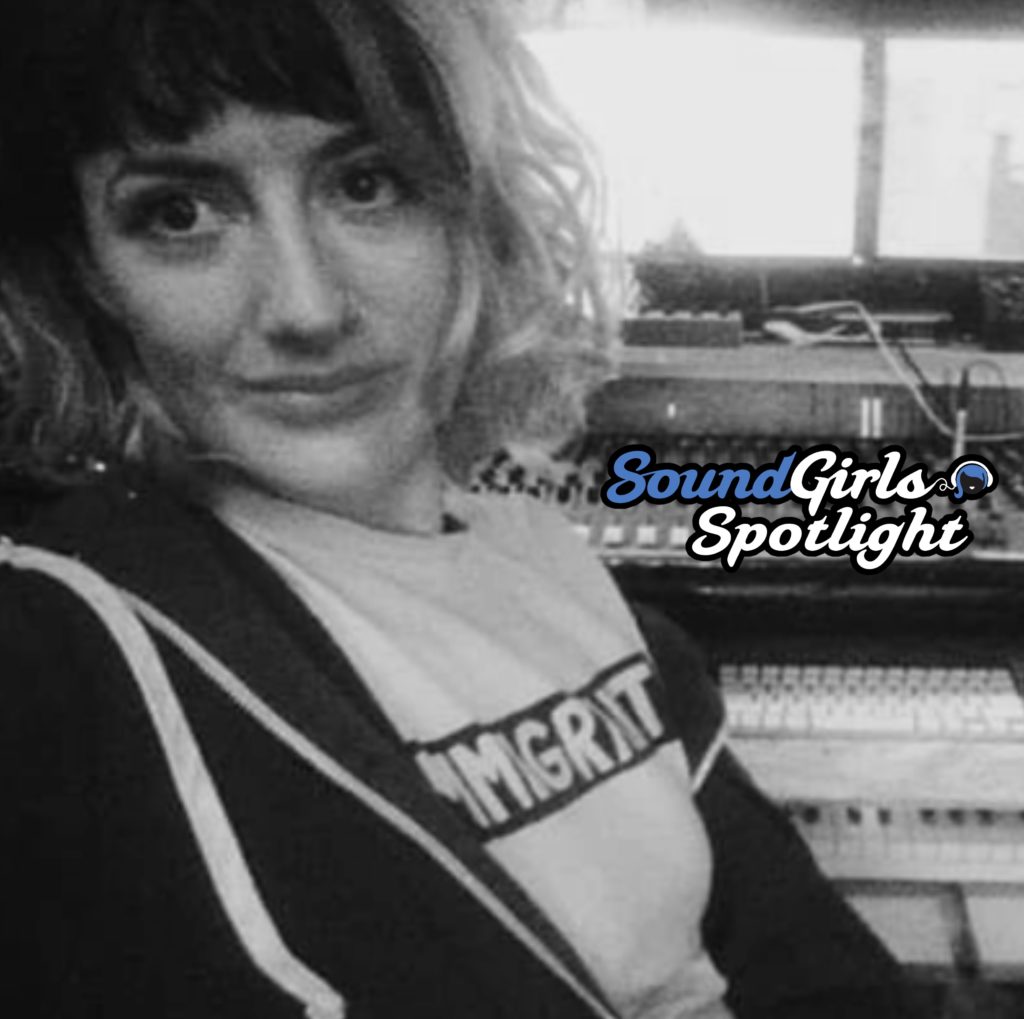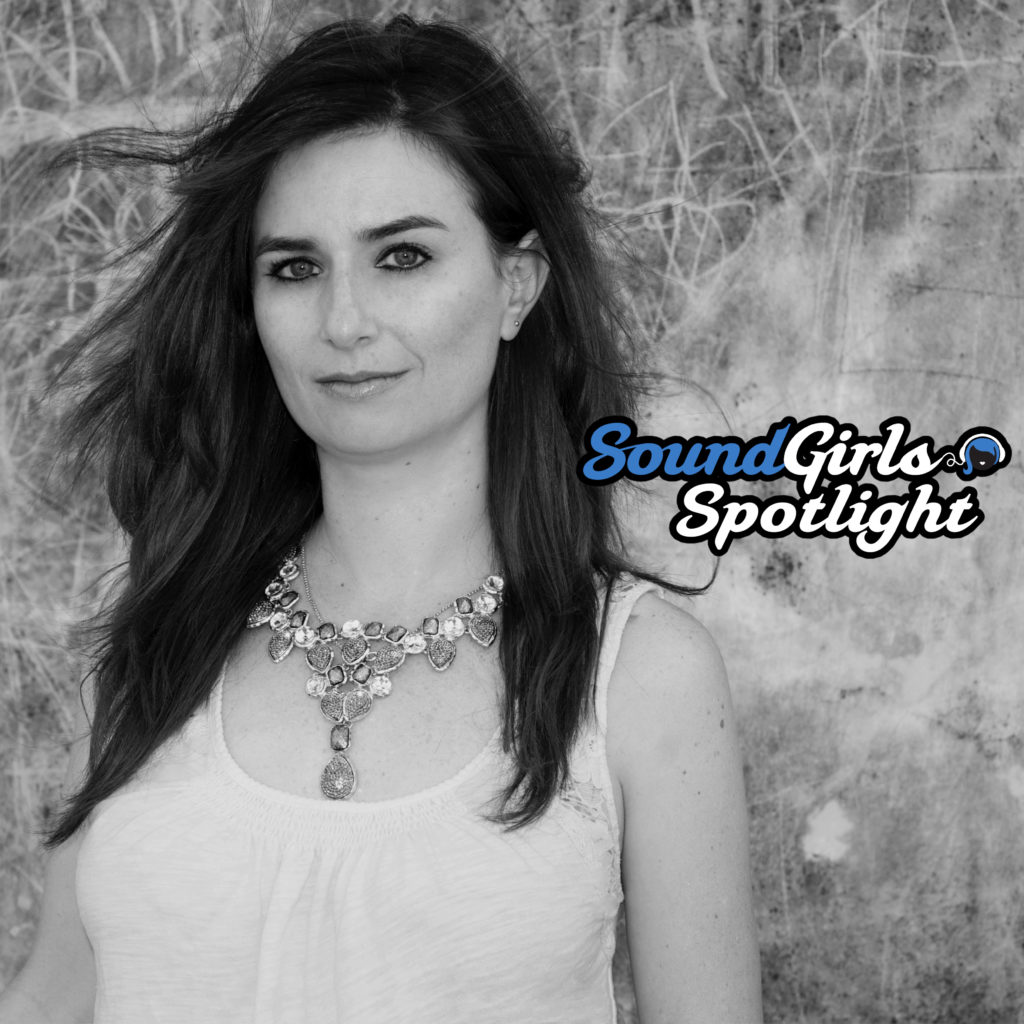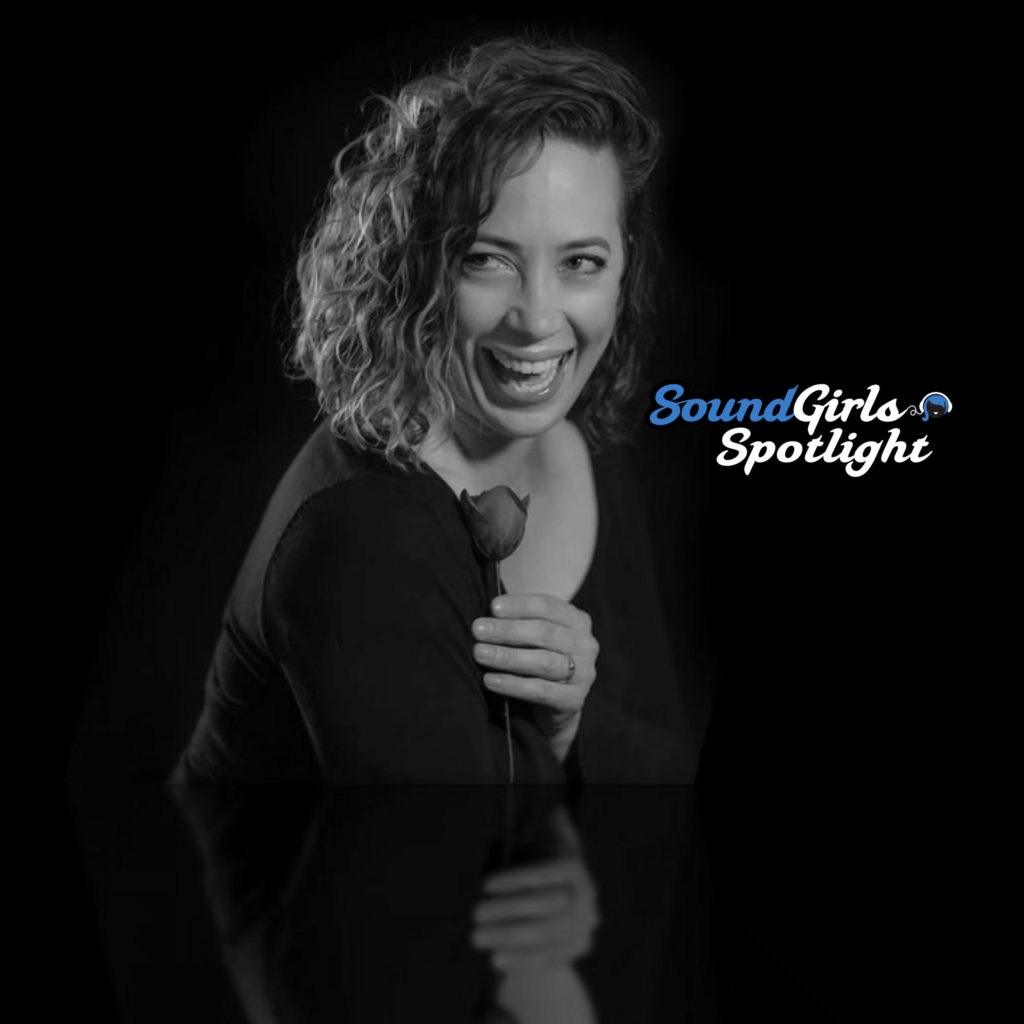Sam Boone has been working professionally in audio for just three years and is currently a freelance system engineer, completing her first tour with Volbeat in 2022. She discovered audio in middle school and spent considerable time working in churches through her teen years. Sam played in the school band as an oboist and then took up guitar as she decided she wanted to attend a school for music. She admits that she was a terrible musician but her love of music, would lead her to live event production. She would go on to attend Middle Tennessee State University as a part of their recording and music program. At the same time, she was interning with a local production company, and when they offered her a full-time position she dropped out of school.
Career Start
I got my start interning at a regional production company. I managed to land that internship by asking for an introduction from a family friend who was familiar with the company.
What did you learn interning or on your early gigs?
I learned several technical skills, primarily basics like cable management, show power, and troubleshooting and repairing gear. I also learned how to prep a tour from start to finish, line check, and build show files. More importantly, I began to see and learn how to interact with clients, how to ask questions, and observe.
Career Now
How did you discover System Engineering?
I discovered systems engineering during my internship while working in the shop, learning what a drive rack is and what it does. That led to me asking about the position of the person using the gear and what all systems engineering entailed.
Why were you drawn to System Engineering?
I was drawn to systems engineering because, unlike so many other aspects of live audio engineering, it’s as much a science as an art. For me, it’s taking the challenge of making the show sound the same in every seat into the context of a new venue daily. I enjoy that I can measure the system, see how well I’ve done, and see what I need to improve. It’s fascinating that I can see a lot of how something sounds on an analyzer. My work is a specific, measurable process, and nothing is random. It’s all a series of decisions with measurable effects, and I can go back to the data and say this is why I made these choices, and that, to me, is something I love.
If someone wants to pursue this path, what advice do you have for them? Education and skills?
The advice I have for someone jumping into this specific role in the industry is to not only get a mentor but also to read a lot. Sound Systems Design and Optimization by Bob McCarthy is a book that I have learned a lot from. I recommend reading Between the Lines by Michael Lawrence as well.
What is a typical day like?
My typical day on tour begins by making a 3D model of our venue for the day (or verifying a pre-made model if I was given sufficient information in advance). Then I’ll design the PA and send the splay angles, trim heights, and all other necessary information to our fly techs. From there, I’ll build FOH, run snakes, and get our FOH engineer powered up and ready.
Once our FOH engineer completes the virtual sound check, we tune the PA, take a walk and listen to it. At that point, we will make any changes we see fit. Then we go onto line check and soundcheck with the band.
Additionally, I’ll usually sit with all the front-of-house engineers through their soundchecks and make any changes they ask for in the PA. I typically have some downtime from there to relax, and finally, we have a show.
During the show, I walk around the venue and listen to the PA. I will also make any changes asked for by the engineer or any specific changes needed to make all areas of coverage sound the same tonally across the venue. Last, we load out and do it again the next day.
How do you stay organized and focused?
I use several spreadsheets and keep notes on everything from the patch to show file changes.
What do you enjoy the most about your job?
I enjoy the challenge of making every seat sound the same every day, regardless of the venue we are in. Some days we play in clubs, while others are in arenas. No matter the venue, my goal is to have every seat at every show sound as close to the same as possible.
What do you like least?
While I love doing tours in Europe, what I dislike the most is the time change when I am there. Tour life can be challenging to regulate and manage all aspects of your life, whether it be work, relationships, or simply trying to figure out how to have a functional schedule without burning yourself out. The time change simply adds another layer to the mix and makes talking to friends and family much more difficult.
If you tour, what do you like best?
I enjoy the people I meet and the travel.
What is your favorite day off activity?
I go to the gym or run on days off to stay physically active. I also work on the next day’s gig, so I feel confident and prepared when I show up the following day.
What are your long-term goals?
Long term, I would love to become even better at my craft. I plan to eventually work on new technology or theory in research and development. I aim to contribute to the industry in a way that will outlast me. I plan to leave behind a better version of the industry than I found when I started.
What, if any, obstacles or barriers have you faced?
For me, the most challenging part of getting started was learning where to start asking questions. For a long time, I didn’t have enough knowledge to ask questions worth answering. Also, once I started learning about audio and its different aspects, there was a moment when it felt overwhelming to look at all the skills I needed to know.
How have you dealt with them?
I decided to deal with this by choosing one skill at a time to work on learning and then either further pursuing it if I was interested in it or moving on to the next one if I wasn’t. That’s how I gathered interest in systems engineering, leading me to my current job.
Advice you have for women who wish to enter the field?
My advice for young women joining this field would be not to be intimidated or deterred by the people around them. Some of the nicest people I have ever met, I’ve met on tour. We’re all figuring it out as we go, and we’re all constantly learning. If someone won’t answer your questions, it’s a sign you should be asking someone else.
Must have skills?
My must-have skills are troubleshooting, organization and communication.
Favorite gear?
My favorite piece of gear I’ve used this year is the Meyer Galaxy 816 processor. I’ll put one in front of any system, and it’s been a game changer to have access to U-shaping for tuning PAs.
You Can Find Sam on The Signal to Noise Podcast
